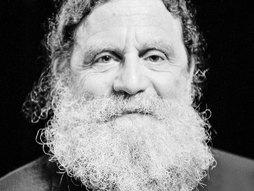Why you want to wash your hands when you feel guilty
Neuroscientist Robert Sapolsky shows us the surprising ways that our brains get mixed up between the physical and metaphorical -- and how this can pit us against each other.
Continue reading
We all have some measure of stress, and Robert Sapolsky explores its causes as well as its effects on our bodies (his lab was among the first to document the damage that stress can do to our hippocampus). In his research, he follows a population of wild baboons in Kenya, who experience stress very similarly to the way humans do. By measuring hormone levels and stress-related diseases in each primate, he determines their relative stress, looking for patterns in personality and social behavior that might contribute. These exercises have given Sapolsky amazing insight into all primate social behavior, including our own.
He has been called "one of the best scientist-writers of our time" by Oliver Sacks. Sapolsky has produced, in addition to numerous scientific papers, books for broader audiences, including A Primate’s Memoir: A Neuroscientist’s Unconventional Life Among the Baboons, Why Zebras Don’t Get Ulcers: Stress Disease and Coping, and The Trouble with Testosterone.
His latest book, Behave: The Biology of Humans at Our Best and Worst, examines human behavior in search of an answer to the question: Why do we do the things we do?
Neuroscientist Robert Sapolsky shows us the surprising ways that our brains get mixed up between the physical and metaphorical -- and how this can pit us against each other.
Continue readingIn the eight session of TED2017, hosted by TED’s Head Curator Chris Anderson, eight speakers — and one unforgettable live jetpack demo — showed us that there’s wonder all around us, from the bugs that live in our backyards and on our skin to the dreams that live inside our minds, waiting to be unleashed. Below, […]
Continue readingWe’re excited to post the next three talks in our new Best of the Web series! Today, we hear from a computer scientist who was battling pancreatic cancer, a neuroscientist and primatologist who learned about human nature by studying animals, and a man whose response to losing his life savings was unexpectedly hopeful. Randy Pausch: […]
Continue reading